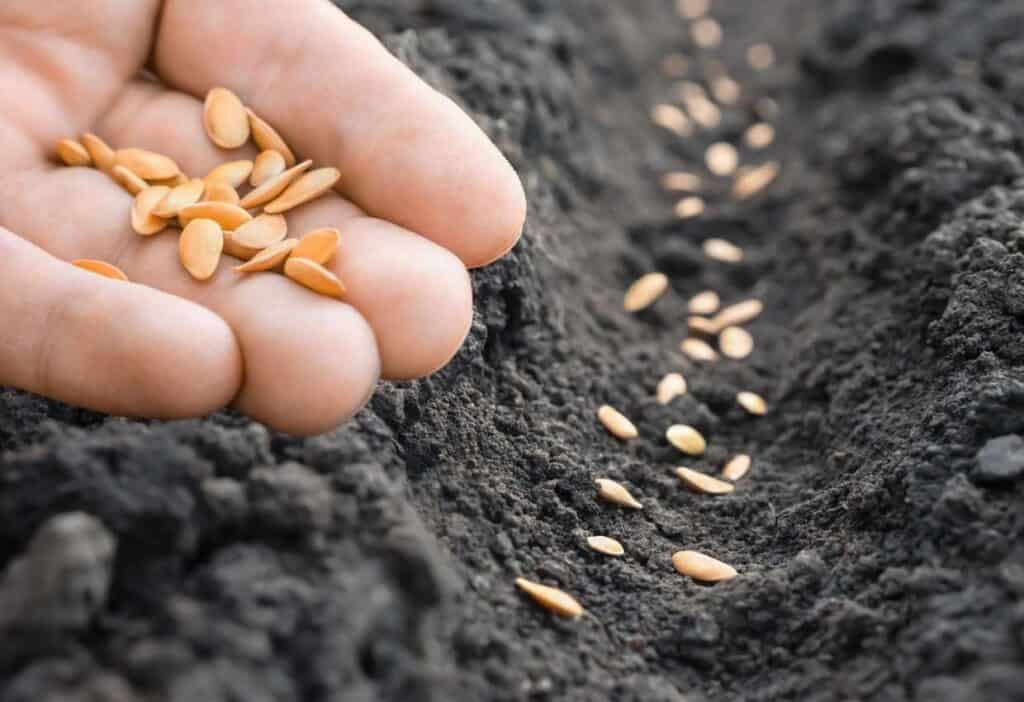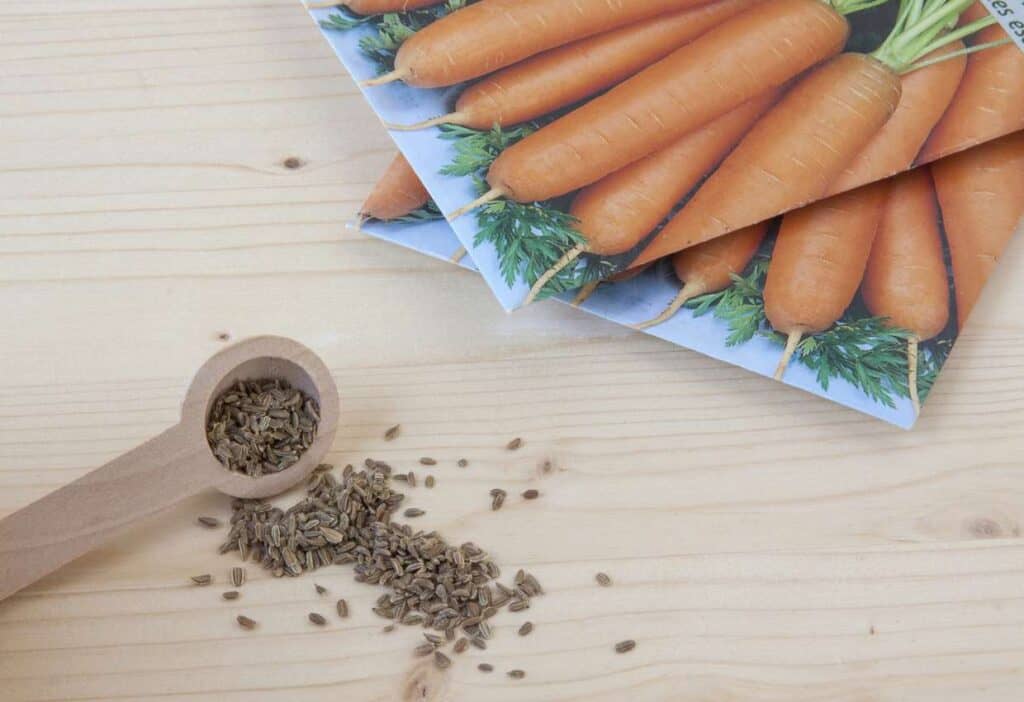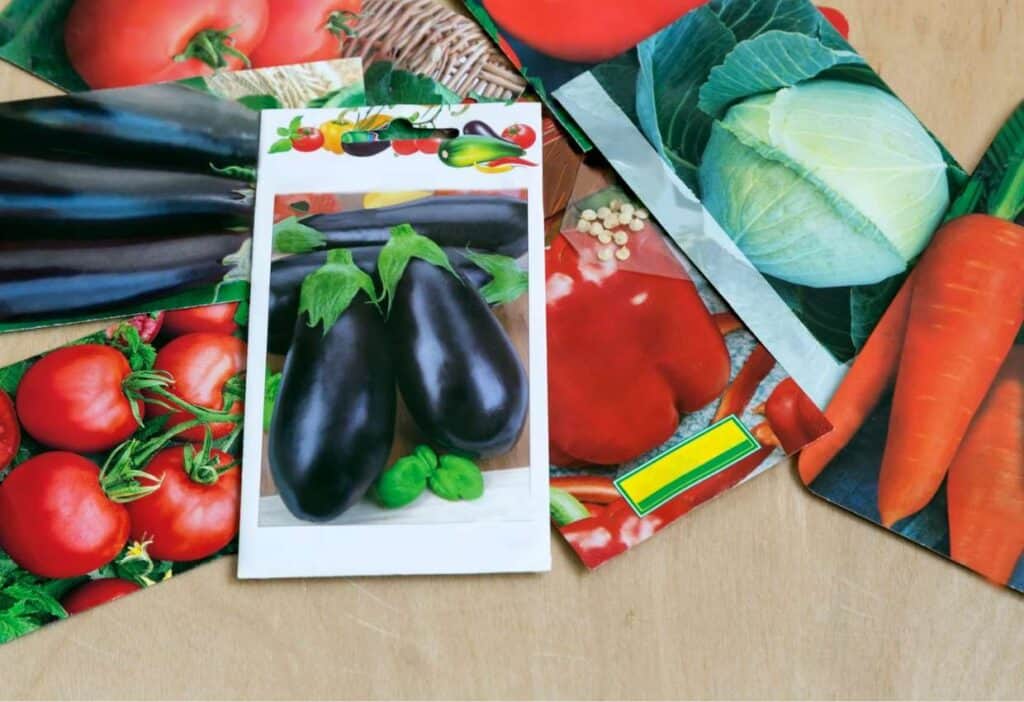As a beginner gardener, it’s easy to get overwhelmed by the variety of seed choices nurseries and garden centers offer each spring. Learn the benefits of organic seeds and how to grow them in a backyard garden.

Organic seeds come from plants grown without synthetic fertilizers, pesticides or genetically modified organisms known as GMOs. They help maintain biodiversity and ensure the genetic purity of plant species.
Why grow organic seeds
Choosing organic seeds over conventional ones offers several environmental and personal benefits. First, they come from plants grown in healthy soil free from synthetic chemicals, which helps ensure they’re chemical-free right from the start.
Organic seeds also contribute to environmental diversity. Planting these seeds helps to preserve the different plant species crucial for a balanced ecosystem, whether in an urban garden or a large homestead garden.
In addition, gardening with organic seeds reduces the exposure of pollinators and other wildlife to harmful pesticides. Buying organic ultimately means contributing to and supporting a healthier local environment.
Vegetables, fruit and herbs grown from these seeds are all-natural. This can be an important consideration for people who prefer to serve all-organic meals.
Finally, by choosing organic, gardeners support farming practices that are sustainable and respectful of nature. This helps to build a better future for the planet.
5 things to know about growing organic seeds
Growing organic seeds is a rewarding way to garden sustainably and healthily. Whether growing vegetables in a vertical garden or flowers in a front garden bed, use these five simple tips to get you started on the right foot.
Learn the difference between organic and heirloom seeds
Organic seeds are produced without synthetic chemicals, focusing on sustainable practices. Heirloom seeds, on the other hand, refer to varieties passed down through generations. They’re known for their unique flavors and historical significance.
Organic and heirloom seeds both contribute to biodiversity. However, according to the University of Nebraska-Lincoln, they differ slightly in how they’re cultivated and stored.

Prepping and pre-sprouting
Preparing a garden for organic seeds means naturally enriching the soil without synthetic or chemical materials. Use compost and organic matter to improve soil health, ensuring the seeds grow in a nutrient-rich environment.
Once planted, keep your garden’s cycle purely organic. Avoid synthetic fertilizers and pesticides. Instead, try a homemade natural fertilizer recipe.
Jessica Haggard of Primal Edge Health suggests pre-sprouting organic seeds before planting. “It’s easy,” she says. “Just place your seeds between damp paper towels or in a shallow water dish for a few days until you see sprouts forming.”
Once they’ve sprouted, Haggard says it’s time to transfer them to soil, covering the roots delicately. This simple technique can significantly improve germination rates and give your garden a head start on healthy growth.
According to Haggard, this is an important strategy to get the most out of your organic seeds since they are a little more expensive. “The better you know how to sprout, the better success you’ll have,” she says.
Choose the right seeds for your climate

An important part of planning a garden involves planting the right seeds for the area. Just because the seed packet is labeled organic doesn’t necessarily mean the seeds are suitable for all gardens. Organic seeds, like hybrid, conventional and heirloom seeds, come in different varieties and require different growing conditions.
For organic gardening success, select seeds that suit the local climate. Research online, visit local garden centers or consult with local gardening groups to find varieties that thrive in your area’s conditions. This step can significantly increase your garden’s productivity and sustainability.
Start your seeds indoors or out
Depending on your climate, the time of year and your plants’ specific needs, decide whether to start seeds indoors or directly sow them outdoors. Starting seeds indoors can give delicate plants a head start in cooler climates.
Some gardeners use a cold frame to get ahead in the summer growing season. Direct sowing, on the other hand, is suitable for hardier varieties and warm environments.
Handle pests naturally
Organic gardening also means dealing with pests without synthetic chemicals. Try natural pest control methods such as companion planting, beneficial insects and barriers to protect your plants. These strategies keep pests at bay and maintain your garden’s ecological balance.
Selecting organic seeds means avoiding GMOs and pesticides, promoting healthier soil and supporting a diverse ecosystem. By choosing organic, you contribute to a movement focused on eco-friendly gardening and improving the environment. Grow organic seeds in your garden today to support sustainable farming practices.
Sarita Harbour is a homeschooling, homesteading mom and a long-time business and finance writer. She created An Off Grid Life to help people become more self-reliant. Sarita and her family live off the grid in Canada’s Northwest Territories.